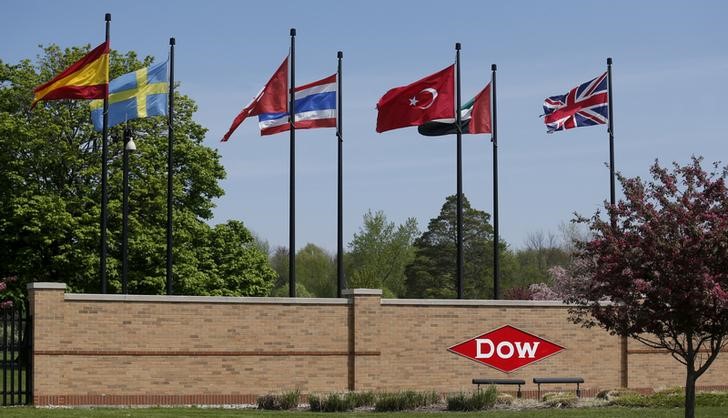BEIJING (Reuters) - A Chinese fund part-owned by congolomerate CITIC Ltd has paid $1.1 billion for some of Dow Chemical (NYSE:DOW) Co's corn seed business in Brazil, in a further sign of China's fast-expanding role in the global seed sector.
The deal includes seed processing plants and seed research centers, a copy of Dow AgroSciences' Brazilian corn germplasm bank, the Morgan seed brand and a license for the use of the Dow Sementes brand for a certain period of time, Dow said on Tuesday.
The assets, which generated revenue of about $287 million in 2016, are being sold by Dow to meet conditions set by U.S. antitrust regulators for its $130 billion merger with DuPont (NYSE:DD).
The deal will boost China's share of the global seed business, which is being remade by a series of huge mergers.
These include the $43 billion takeover of Swiss firm Syngenta by state-owned Chemchina in China's largest foreign takeover.
Chemchina said recently it is looking to snap up seed assets that rival Bayer (DE:BAYGN) must sell to gain regulatory approval for its takeover of Monsanto (NYSE:MON).
CITIC Agri Fund was founded in 2016 by CITIC Agriculture, a division of state-backed CITIC Ltd, along with Chinese seed firm Yuan Longping High-Tech Co Ltd and two other listed agricultural companies, according to CITIC Ltd's 2016 annual report.
CITIC Ltd, China's largest conglomerate with interests in financial services to real estate and heavy industry, could not immediately be reached for comment.
The company made its first foray into the seed business in 2014, buying a majority stake in Yuan Longping High-Tech, one of China's leading breeders of hybrid rice.
Yuan Longping High-Tech said that year that it wanted to become one of the world's top five seed companies.
Dow and DuPont announced the all-stock merger in December 2015.
The two companies won U.S. antitrust approval last month to merge on condition that they sell certain crop protection products and other assets. The European Union also cleared their merger in March.
Dow reaffirmed that the merger deal was expected to close next month, with the intended spin-offs to occur within 18 months of closing.
The companies have said that they would split into three separate companies specializing in material sciences, specialty products, and seeds and agrochemicals upon completion of the merger.
